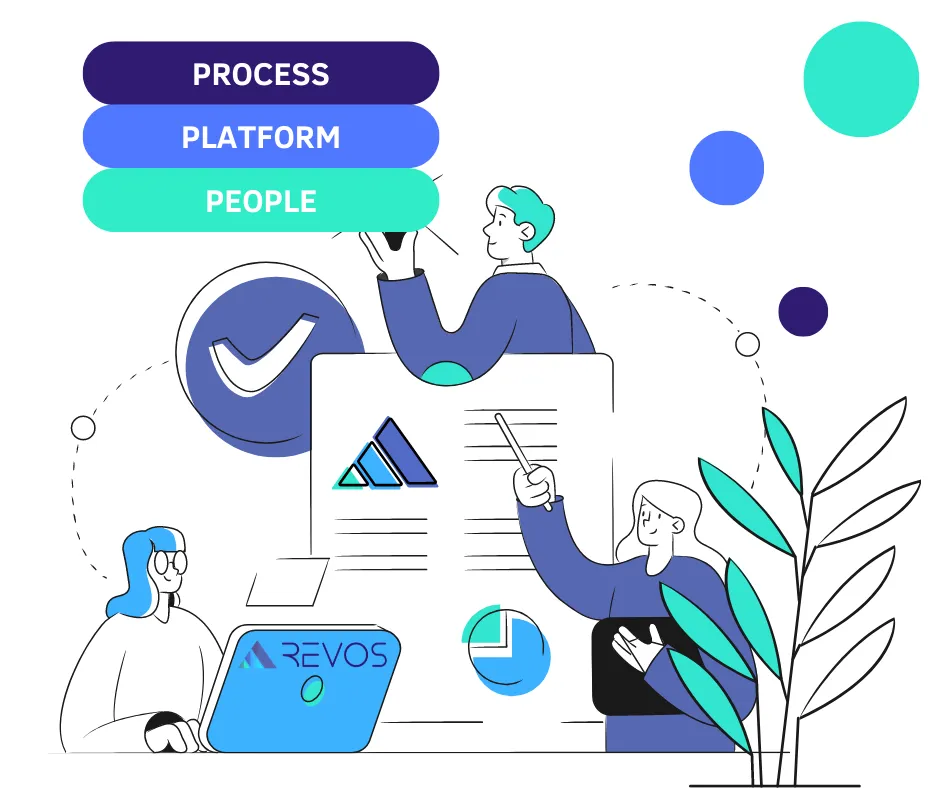5 Reasons to Start Fractional Revenue Operations Now
 Renat Zubayrov
Renat ZubayrovRevenue operations (RevOps) is a modern operating model for fast-forward companies that aligns businesses’ goals, processes, tools, and people to supercharge revenue. Effective RevOps crush the misalignment across the sales, marketing, and customer success and set up a perform experience through every customer journey stage.
According to the Global Gartner research, almost 75% of high-grow companies will apply Revenue Operations Approach by 2025. It means those who started aligning all the processes in the companies now will win tomorrow or in the nearest future. A move to revenue enablement from sales enablement (classical path) is needed in today’s dynamic shifting market relations to reinforce RevOps imperative.
Why Revenue Operations?
Nowadays sales become increasingly digitalized and sales tech becomes more complex. CRM alone is no longer sufficient for effective account management and sales. More and more instruments are finding their way into the day-to-day job of customer-facing crews. On the other hand, more digital tools mean more data silos and much more integration challenges. Irrelevant and outdated data have a negative effect on customer experience and require additional manual work. It makes impossible proper process orchestration and holistic reporting across team boundaries and tools. Previous approaches to support customer-facing teams were typically organized in individual support groups like Sales Operations, Marketing Activities, Deal Desks, or Pre-Sales Support, however, that siloed approach was suffering from challenges of common goal alignment, common reporting as well as holistic process orchestration. Moreover, traditional tooling to support this process required technical know-how and brought a lot of complexity, without generating additional business value.
The Three Main Components of an effective Revenue Operations
RevOps unify various organizational silos and put in order towards the primary goal - making a greater experience for the customers with rapid growth. It consists of three main components: processes, platform, and people.

1. Process
RevOps is about improving clients’ workflow of the parts of your company. Practically, this means that each department and employee put in place holistic processes in the company. Everybody acts on the same business goal helping each other to cooperate and communicate. The main process is defined via the common process map as well as a common set of goals and KPIs. Specialists of the Revenue Operation create processes that cover all customer path stages building a successive and delightful experience for clients moving from side to side on the customer journey. Process map defines circular and not linear steps on the journey of the prospects who is liable for what and what are the indicators of KPIs and SLAs for hand-over between different departments.
2. Platform
Consolidating various departments means consolidating various tech tools, customer records, and data out of different silos. It is essential to general procedures to make sure different departments speak the same language and build the same, common, understanding of prospect data, the behavior of the customers, and KPIs. You would work to unify businesses’ ways of getting information into one single stream that’s effortless to understand. It makes it easier to know how to present an understandable story to your prospects and let your staff know what everyone else is doing. This is what’s called a ‘truth of the single source’. Departments working from their own data can end up going in their own (sometimes wrong!) directions. But if everyone’s on the same page, there is far less chance of wrong turns, and with an aligned RevOps strategy, CRO can make data-based decisions, better forecasting, and faster growth.
3. People
For a successful RevOps function, we need people. Motivated, result-oriented, and energetic employees should be in the company and drive the processes. It’s common to share responsibilities among existing teams. RevOps function requires a bit of jake of all trades person. She should possess a mixture of skills such as technical know-how (e.g. application and data integration, data analysis, etc.) as well as deep customer empathy and business know-how. This person should be able to focus on important numbers and pick battles that would generate the biggest wins for high-level business KPIs. This person should also be an effective communicator as communicating across various departments in multi-stakeholder situations is a common part of the job. Building the right kind of working squad and unifying your platforms matter most. With those, it becomes simplest and easier for you to conduct a RevOps method to a business. In other words, these components are crucial to success.
RevOps - Next steps
What could be the upcoming steps in adopting an integrated approach of the Revenue Operation? Despite being a new(ish) concept there are persons on the market with relevant expertise and proficiency level. The same war for talent is also there - according to Forrester 89% of companies are planning to invest in RevOps in 2023. Hiring a professional person full-time could be quite expensive, not to mention that the actual cost is typically much higher when you include variable, recruitment, and onboarding costs. Another solution could be Fractional Revenue Operations from RevOS.
It combines the proprietary RevOS.ai platform, experience, and playbooks as well as depth and breadth of executive expertise, and an objective perspective, that delivers measurable results.
5 Reasons to start with a Fractional RevOps by RevOS
- Combination of technological platform and know-how - expertise in building and scaling revenue organizations combined with the unique automation and integration platform that focuses on all aspects of income management and operation.
- Scalability - fractional RevOps team removes remove barriers to growth, talks through challenges, increases your capacity, and tells it like it is regardless of company size and current state.
- Cost efficiency - for a faction cost of a full FTE you can start small and grow later. It is prohibitive, don’t simply limp along when you can have your cake and eat it too at a fraction of the cost.
- On-Demand service. Receive guidance and support when required, and scale on demand. We structure our services to match your current stage, growth plans, and market situation. We support all activities with a mutually agreed SLA.
- Faster time-to-value. With the fractional Revenue Operations-as-a-service from RevOS, you can begin tomorrow without spending time on head-hunting, interviewing, and onboarding the full-time specialist. Moreover, after the initial revenue process setup and adjustments, we can support in hiring the junior RevOps whom we will onboard and train for long-term ongoing support.
Read more about revenue operations, growth strategies, and metrics in our blog and follow us on LinkedIn, Youtube, and Facebook.
← Go back to blog